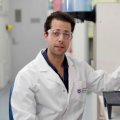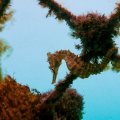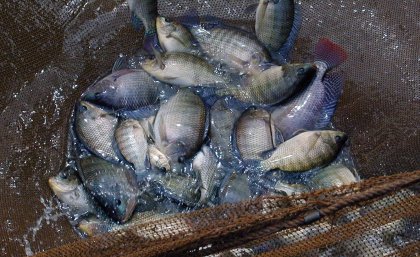
A quick, cost-effective, cloud-based platform, which could solve one of fish farming’s biggest challenges, has received a US$100,000 grant for concept development and testing.
The University of Queensland’s Dr Andrew Barnes is helping bring together years of fish pathogen data, combining it with new pathogen DNA sequences from infected fish, aiming to build a cloud-based service that accurately diagnoses a range of fish diseases.
“Aquaculture is one of the fastest-growing food production sectors in the world,” he said.
“It’ll be essential to meeting the 40 per cent increase in demand for food fish expected by 2030, according to the United Nations Food and Agriculture Organization, and is already providing incomes and new jobs for women and men of all ages, particularly in Africa.
“But a key challenge to aquaculture is outbreaks of disease.
“Tilapia lake virus and streptococcal infections, among others, can quickly wipe out farmed fish and are becoming more common as a result of overstocking, poor hygiene practices, and insufficient controls at hatcheries and farms.
“Managing outbreaks is often hindered by limited knowledge of the pathogens, which in turn contributes to anti-microbial resistance, as farmers use the wrong kinds or quantities of antibiotics on their fish.”
The team behind the concept was one of five winners in the Inspire Challenge 2019, organised by the CGIAR Platform on Big Data in Agriculture.
The competitive award funds innovative proposals that can help bring the power of big data to small-scale food producers.
Each finalist pitched their idea to a panel of experts at the upcoming Big Data Convention in India’s tech hub Hyderabad, with each winner receiving a grant of US$100,000 to develop and test their concept over the following year.
“We’re absolutely delighted with the win,” Dr Barnes said.
“The technology – which harnesses the power of rapid genome sequencing – provides all of the information we need to make informed decisions on disease control without the need for expensive pathogen-specific tests and tools.
“The sequences enable you to infer the origin of a pathogen; see how it is evolving and moving through different environments and across international borders.
“Most importantly, it allows you to identify possible antimicrobial resistance genes and factors relevant to vaccine formulation.
“With this kind of knowledge we can provide very specific advice on how to control and prevent outbreaks.”
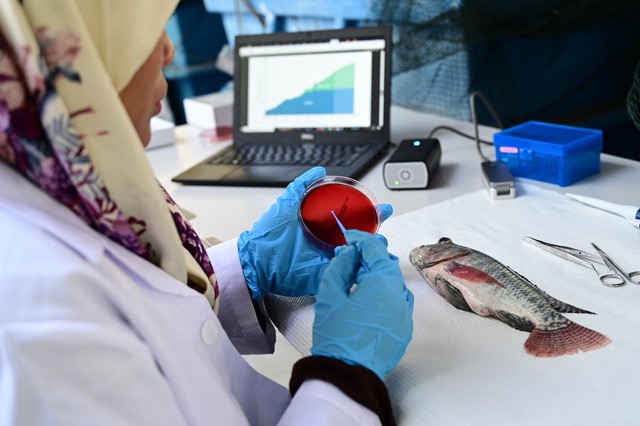 Project leader Dr Jerome Delamare-Deboutteville of WorldFish said it would generate genomic sequences from pathogens of tilapia and carp, the world’s most important farmed fish.
Project leader Dr Jerome Delamare-Deboutteville of WorldFish said it would generate genomic sequences from pathogens of tilapia and carp, the world’s most important farmed fish.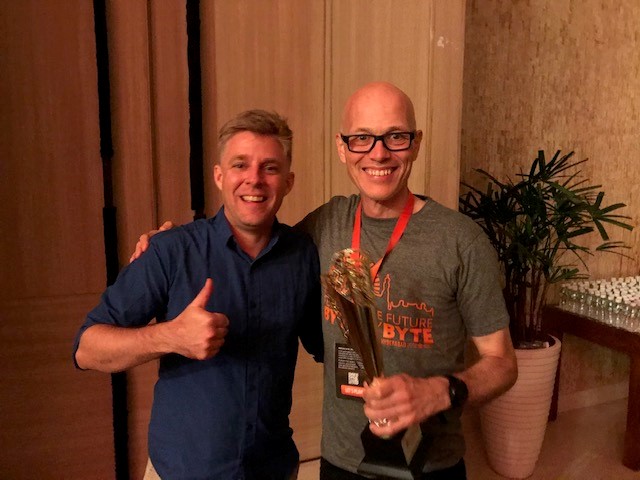
“Rapid diagnosis combined with effective management can mean the difference between a fish farmer losing all her stock within days of a disease outbreak and consistently producing a bumper harvest,” Dr Delamare-Deboutteville said.
“Multiply that across one of the world’s fastest-growing food production sectors, and all of the vital nutrients, jobs and opportunities it provides, and you could have an enormous impact on well-being in developing countries.
“This could represent a quantum leap in responding to the major production constraints for farmed fish, and could be applied to rapid disease detection, response and prevention in all farmed animals around the world.”
The platform is possible thanks to open source machine learning technology provided by Wilderlab NZ.
Image above: Sampling tilapia for rapid pathogen sequencing. Credit: WorldFish
(L-R) Dr Jerome Delamare-Deboutteville and Dr Andrew Barnes celebrating their win in Hyderabad.
Media: Dr Andrew Barnes, a.barnes@uq.edu.au, +61 414 850 833; Dominic Jarvis, dominic.jarvis@uq.edu.au, +61 413 334 924.
.jpg)
